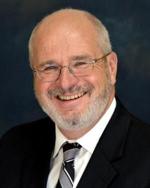Life, Death, And John Mellencamp
On the day my brother went into the hospital for the last time, I ran to the store to pick up some things for him.

John Krull, publisher, TheStatehouseFile.com
Among them was a CD of John Mellencamp’s album, “Strictly a One-Eyed Jack,†which was just out.
We both had been fans of Mellencamp and Bruce Springsteen for decades. The two singer-songwriters had been linked for 40 years, with Mellencamp at times being dismissed as the Midwestern—and therefore lesser—answer to the bard from New Jersey.
“Strictly a One-Eyed Jack†featured something new, the first collaborations of the two artists. My brother had been eager to hear the album.
I offered to play it for him on my phone with a portable sound system.
My brother, though, was old school. He never cared much for streaming and preferred to listen to his music the way he always had. He asked me to leave the CD at his home so he could enjoy it when he got out of the hospital.
He never made it back home.
He died before he got to hear it.
After my brother’s death, I listened to “Strictly a One-Eyed Jack†over and over, in an almost endlessly looping rotation. Many of the songs dealt with themes of reflection, regret and remorse, all of which suited and spoke to my mood.
Mellencamp’s music at times became the voice of my grief. Listening to his album became one way I came to terms with losing my younger brother.
The songs Mellencamp did with Springsteen—“Wasted Days†and “Did You Say Such a Thing?â€â€”received the most attention.
And deservedly so.
Both songs were poignant explorations of the ways life and experience mark us, how we are shaped by the things we touch and that touch us and how life often slips past us while we’re worried about other things.
I really liked those songs, but the one on the album that haunted me was “Gone So Soonâ€:
“Getting back close to you
“I always thought I’d be close to you
“I never dreamed I’d see the day
“That you would go away
“And be gone so soon
“And be gone so soon.â€
When my brother and I first started listening to Mellencamp all those years ago, his voice was a raspy tenor. Time and years of smoking had coarsened and deepened it, turning it into an earthy growl—the perfect instrument for communicating hurt, befuddlement and rage.
I’d talked with my brother about how odd it was that an artist I didn’t know somehow managed to sing, through the years, something resembling my autobiography.
Mellencamp’s early work captured the sense of my early manhood. He summed up all the questing, the confusion, and the sheer hunger to see and experience life that accompanied coming of age in the Midwest.
As Mellencamp and I both grew older, his music began to delve into more mature themes. He struggled to make peace with notions of responsibility—marital, familial, social and moral—in a world where many people had begun to believe they owed nothing to each other.
Not surprisingly, as my brother battled the cancer that would kill him, autumnal themes preoccupied him. He told me once as we ate dinner together that he thought about death all the time. It troubled him that so few people seemed willing to discuss the end that awaits us all.
He thought about the course of his life and talked with me about the choices he’d made, the twists and turns his path had taken.
After he died, among the myriad things I wished he’d lived long enough to experience was that of listening to Mellencamp’s album. The singer’s sometimes wry, sometimes rueful long view would have spoken to my brother.
But my brother didn’t have a chance to listen to it.
One thing I’ve realized in the aftermath of his passing is that those who survive owe a duty to the dead—a duty to remember, to reflect and at times just to experience.
John Mellencamp has a new album out. It’s called “Orpheus Descendingâ€â€”a reference to the poet in Greek mythology who almost rescues his departed wife from Hades through the enticing power of his art.
My brother won’t be able to hear that one, either.
I’ll do the listening for both of us.
FOOTNOTE: John Krull is director of Franklin College’s Pulliam School of Journalism and publisher of TheStatehouseFile.com, a news website powered by Franklin College journalism students. The views expressed are those of the author only and should not be attributed to Franklin College.







